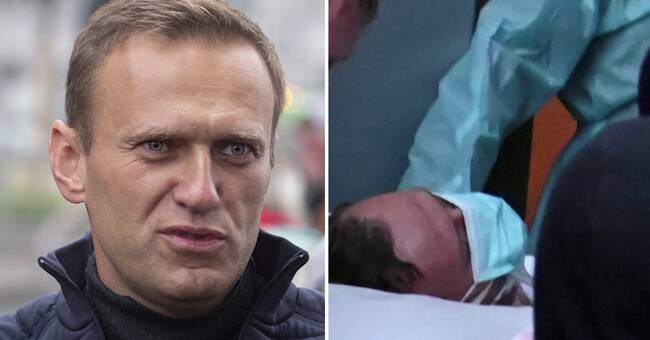The President, Vjatjeslav Volodin's assessment is that it is probably foreign security services that are behind the poisoning and he points specifically to the German security service as a probable perpetrator.
The purpose must have been to get reasons to increase sanctions against Russia and prevent Russia from defending Belarus.
President Putin's spokesman Dmitry Peskov continues to claim that there is no evidence that Navalny was poisoned by a Novichok-type poison developed in the Soviet Union that only the Russian military and security services have access to.
The tactics are the same as when double agent Sergei Skripal was poisoned with the same type of poison by two Russian agents in Salisbury, England in 2018.
Requires access to data
Russia demands access to all the information that Britain had then, and all the information that Germany has now.
In practice, Russia wants to know exactly how foreign laboratories have managed to identify a poison that the Kremlin thought no one could trace.
The latest, but certainly not the last, of the Kremlin's two-handed attempt is the argument that Navalny's collaborators have sabotaged Russia's ability to investigate the case.
There was a bottle of water in Navalny's hotel room.
Navalny's employees managed to bring that bottle to Germany, where it was found that there were traces of Novitjok on the bottle.
That the bottle was not allowed to be examined in Russia was unfortunate, because then we could not find any evidence, says spokesman Peskov.
But the very point of smuggling the bottle out of Russia was that someone who is not under the Kremlin's control may analyze and also publish the results.
No doubt about it
Laboratories in Germany, France and Sweden have concluded that Navalny was undoubtedly poisoned by the dowry Novitjok.
When the pilot on Navalny's plane made an emergency landing in Omsk, Navalny immediately received an antidote to neurotoxins.
The care in Germany that saved his life was also based on helping his body resist the nerve agent.
There is no evidence, the Kremlin claims.
But, one may wonder what the evidence is then that Navalny's employees have sabotaged an investigation, or that the German security service poisoned Navalny in order to hinder Russia's attempts to defend Belarus.

